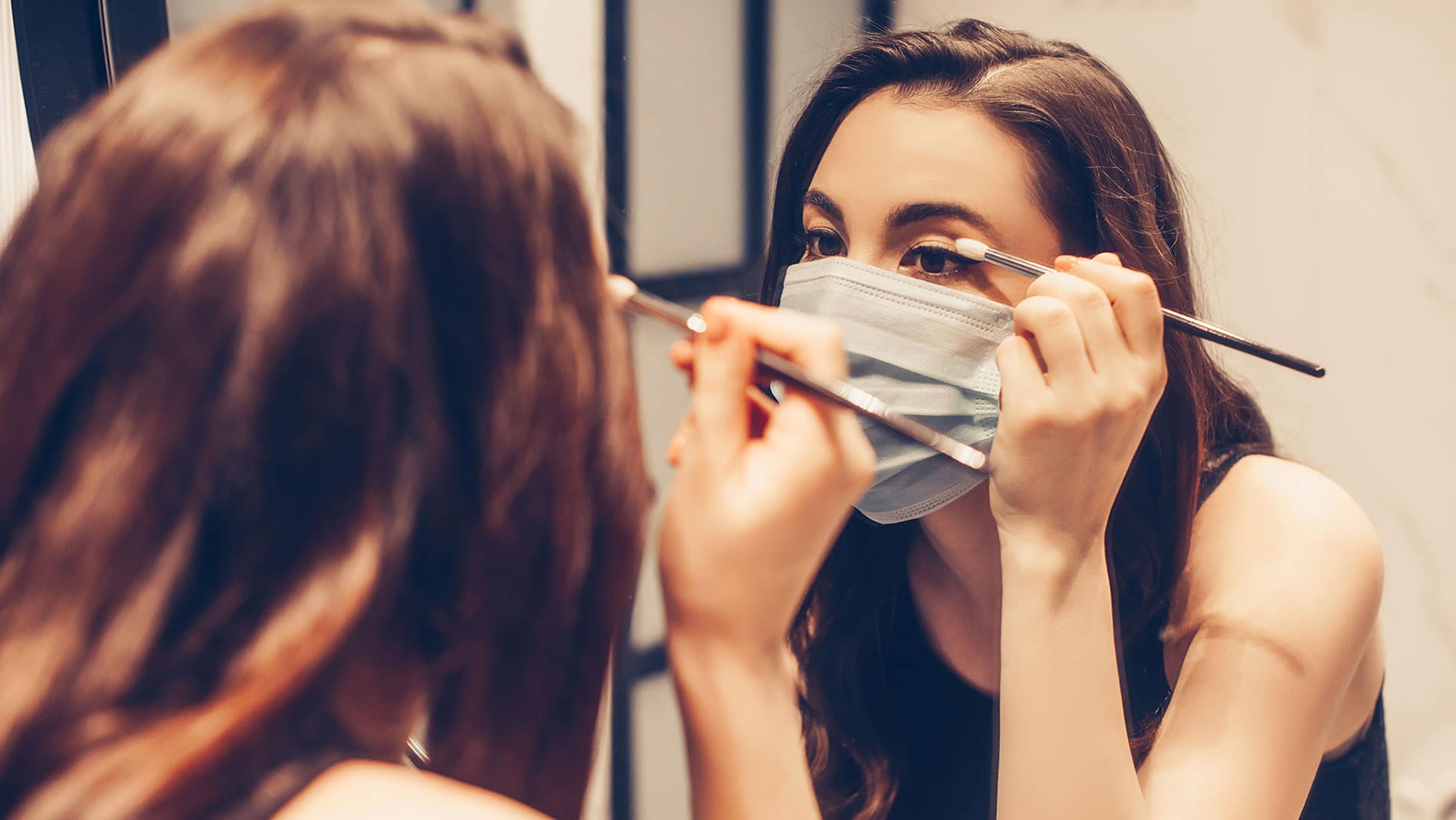[vc_row njt-role-user-roles=”administrator,armember”][vc_column][vc_column_text]
One year after the start of the pandemic, the beauty sector is still not coming out of the water : Nocibé announced two days ago the closure of 62 of its shops, the German perfume group Douglas has planned to close 20% of its stock in Europe and Sephora has lost 30% of its sales in total.
Teleworking and wearing the mask, the new enemies of beauty
Among all the sanitary restrictions, those which are particularly detrimental to make-up and cosmetics traders are of course the closure of physical shops, but more generally, the wearing of masks and teleworking.
Indeed, who says less social life means less importance given to aesthetics, Kantar evokes “more natural, less superfluous, clothes, look and make-up have become less essential” in the eyes of French consumers.
In addition to the absence of outings, teleworking does nothing to help reduce social interaction, it accelerates it, according to a report published Monday by the research firm NPD Group. Still according to the latter, make-up, a product of sociability, experienced a 35% drop in sales in 2020 in France compared to 2019.
This is a logical phenomenon. Indeed, who would take the trouble to make up their lips when they are hidden by a mask? From small causes to big effects, the beauty sector finds itself to be one of the least resistant sectors.
Life at home has given rise to global trends, or at least has accelerated them: an increase in physical exercise, but not that the care given to the face has had the opposite effect to that of the mask on make-up.
Facial treatments, such as “products against acne and blemishes” appeared to be resilient to the wearing of masks, and gained 32% in value, a figure unveiled by the same firm.
To give a more general idea, sports specialists only lost 4.5% of their annual sales in 2020, home furnishings specialists 8%, specialised food 7% and optics 9.4%, according to the balance sheet of the specialised trade federation Procos.
The perfume surprisingly only fell by 15% thanks to its role as a “welcome Christmas present”.
Insufficient growth in online sales
According to the NPD Group, online sales in the prestige beauty sector now account for 16% of total sales, after a jump of 52%.
However, online sales will never be able to replace the void left by physical shops, especially in this sector where the customer experience as well as the fitting is paramount.
For example, Procos considered that “the reopening of the shops on 29 November was a key decision. It has enabled us to achieve a 12% increase in shop sales (in December, compared with the same month in 2019, excluding restaurants) and to limit the risk of short-term failures while remaining hopeful”.
The retailers’ results do not lie: online sales have only compensated for “only 18% of the total losses of physical shops” according to the NPD group, and they only allow “recovering, depending on the sector, between 2 and 4% of the drops in shop activity” for Protos.
Laurent Thoumine, the executive director of Accenture France and Benelux, and a specialist in distribution, spoke on the subject and considers that “it will be necessary to rethink this market in the light of a new reality”. The difficulty lies in the fact that product testing requires a certain proximity, which is not safe with regard to the virus. The solution for him is therefore “the virtualisation of assistance and advice” when ordering online.
“The test is fundamental and online sales don’t allow it today. We can develop all the software we can to test if the colour goes in our photos, but it will never replace the physical test. We can’t retransmit taste, smell and texture. So it won’t be the only sales channel,” says Patrick O’Quin, president of thea FEBEA, (Federation of Beauty Companies).
The virus carrying innovation
So even though the virus has had a heavy impact on the world of beauty, it has been an opportunity to show creativity and adaptation by innovating as much as possible. The task is indeed more complicated for the make-up sector, for example, than for sports or fashion.
With the rise of personal care products such as facials and hair care, the concept of “anti-mask”, or the blossoming of pimples under the mask, has also been considerably developed and reinvented. These treatments, now composed of topical products, combine protection and care. Another evolution? Lip balms for men who complain of mask irritation.
Wearing a mask therefore forces beauty brands to adapt to the needs of the face, new products have thus developed and make-up tends to be closer to skin care. We can mention mascara to make lashes grow, anti-ageing or moisturising foundation, or lipstick to smooth fine lines…
For Patrick O’Quin, “There is no revolutionary appearance, the trends that were already well established are reinforced by this crisis. First there is the search for natural, organic products that are not bad for the environment, then the will to take care of oneself and finally the emergence of online sales. »
Lire aussi > LUXURY COSMETICS : HOW WILL THE GLOBAL MARKET FOR BEAUTY AND PERSONAL CARE PRODUCTS EVOLVE BETWEEN 2020 AND 2025 ?
Photo à la Une : © Press[/vc_column_text][/vc_column][/vc_row]








